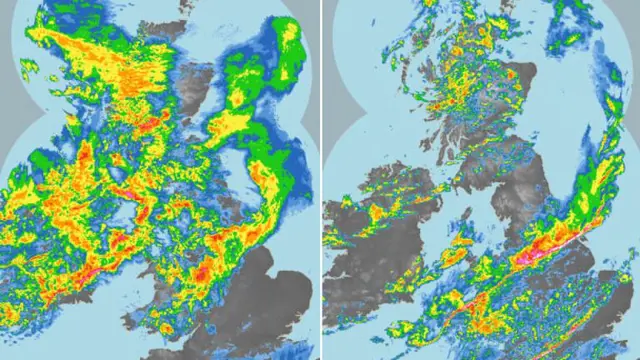A supercomputer which can forecast weather and climate 18 times faster than current technology is set to be developed.
The new technology, funded by a £1.2bn investment from the government, is expected to be the most powerful system used for forecasting in the world and will be managed by the Met Office.
Forecasters were able to predict storms Ciara and Dennis six days in advance, but the new technology would be even more powerful.
The supercomputer will be used to predict worldwide climate patterns and the kind of conditions that have seen both severe flooding in India and destructive bushfires in Australia in recent months.
It will also help guide government policy on hitting its target of net zero emissions by 2050.
Professor Penelope Endersby, chief executive of the UK weather service, described it as "a great vote of confidence in our world-leading weather and climate centre".
"This supercomputer will enable us to do more accurate, more timely, more localised, more tailored forecasts of weather and climate so that people can make better decisions in the face of severe weather or climate change as to how to survive and thrive," she said.
But Clara Goldsmith from the Climate Coalition, the UK's largest group dedicated to action against global warming, says that while investing in such technology is important, "what's just as important is that we invest in solutions to climate change that will stop this problem getting worse".
"We need to invest in solutions that de-carbonise our economy... from de-carbonising our transport system, our homes, ensuring there is a proper role for renewable energy across the country," she said.
"There's investment that needs to go into all of these sectors as well."
The supercomputer will also help the government determine the best places for flood defences.
Knowing severe weather is coming as early as possible means more chance of being ready.
But Eric Brotherton, from Ribchester in Lancashire, believes the money would be better spent now helping people like him who are repeatedly left to protect their own homes from flood water.
"£1.2bn on a computer?" he said. "No... It's got to be people first then the computer in my opinion."
(SKY NEWS)
 简体中文
简体中文

